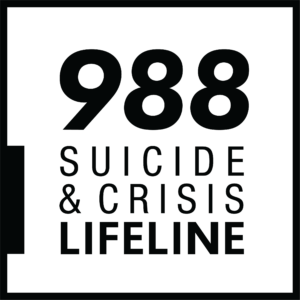Recognizing the Warning Signs of a Suicidal Partner
Supporting a girlfriend, boyfriend, or partner who is struggling with suicidal thoughts can be deeply emotional and challenging. You may be feeling complex emotions such as guilt, rejection, fear, or frustration over how your partner’s struggles are impacting communication, affection, and intimacy in your relationship. However, it’s important to remember that their struggles are not a reflection of your relationship or of anything you’ve done wrong.
Suicidal thoughts often stem from deep emotional pain, mental health conditions, or other personal struggles that go beyond any single relationship. You may feel uncertain about what to say or how to help, but simply being there and offering support can make a significant difference. Recognizing the warning signs, having open conversations, and knowing when to seek help are important steps in providing care for your partner.
- Family history of suicide or mental health disorders
- Previous suicide attempts
- Physical/mental illness
- Physical, sexual, domestic, or child abuse/trauma
- Substantial loss (relational, social work, financial)
- Facing oppression and injustice, such as racism and/or sexism
- Substance use or addiction, including behavioral addictions such a gambling
- Homelessness
- Challenges that LGBTQ+ people face, such as discrimination and anti-LGBTQ+ policies
- Lack of access to behavioral healthcare
- Isolation
- Poor coping or problem-solving skills
- Access to lethal means
- Talking, writing, or joking about death, dying, or suicide
- Feelings of sadness or hopelessness, often accompanied by anxiety
- Direct statements, such as “No one would miss me if I were gone”
- Declining school or work performance
- Loss of pleasure/interest in hobbies and activities
- Impulsive behavior
- Withdrawing from your relationship, friends, and family
- Struggling to express love or affection
- Difficulty engaging in your relationship
- Decreased libido
- Sleeping too little or too much
- Changes in mood
- Fluctuations in weight or appetite
- Depressed
- Out of control
- Confused
- Overwhelmed
- Isolated
- Worthless
- Helpless
- Hopeless
The Best Way to Talk to a Suicidal Partner

How to Initiate the Conversation
Starting a conversation about suicide can feel intimidating, even with someone as close to you as a boyfriend, girlfriend, or partner. However, approaching them with care and sincerity can make all the difference. Choose a quiet, comfortable setting where you won’t be interrupted or distracted (no phones or TV in the background), allowing them to feel safe, supported, and that they have your full attention.
Start by gently expressing your concern based on specific observations, such as, “I’ve noticed you’ve been feeling really down lately, and I want to check in with you.” Be sure to let them share at their own pace, and avoid making assumptions or pressuring them to talk. Using open-ended questions like, “How have you been feeling?” or “What’s been on your mind?” can encourage them to open up without feeling judged or dismissed. The goal isn’t to have all the answers but to show that you care, that you’re willing to listen, and that they don’t have to go through this alone.
Listen with Empathy
Listening with empathy means creating a space where your partner feels truly heard and understood, without fear of judgment or dismissal. Allow them to talk without interrupting, and resist the urge to immediately offer solutions. Simply being present and acknowledging their pain can be reassuring.
If they express feelings of hopelessness, avoid minimizing what they’re going through. It’s also important to acknowledge the unique emotional dynamic of a romantic relationship. Your partner may feel like a burden to you or worry that their struggles are damaging the relationship. Reassure them with statements like, “I love you, and I want to be here for you,” or “You are not a burden to me.” This can help ease their fears of pushing you away, and makes them feel heard and validated.


Respond with Care & Compassion
If in your conversation your partner expresses or implies thoughts of suicide, don’t be afraid to ask directly, “I’m concerned about you. Are you thinking about killing yourself?” This won’t put the idea in their head, but can help open a critical piece of the conversation. If they say yes, stay calm and let them know you’re there for them, and then ask them follow-up questions about their plan:
- Have you thought about how you might do it?
- Do you already have the means (guns, pills, etc.) available?
- Have you decided when you will do this? Do you know where?
If they say they’re not thinking about suicide, continue listening with care and support. Avoid expressing relief, as this might make them feel like they can’t come to you if their feelings change in the future.
If they do say yes and are actively considering suicide, take their words seriously and seek help right away. If they are in immediate danger, don’t leave them alone – call or text 988, reach out to a medical professional, or, if necessary, contact emergency services to ensure their safety.
Suicidal Threats as Emotional Manipulation
In some cases, a partner may threaten to kill themself as a form of emotional manipulation or control, especially in abusive or toxic relationships. This behavior is different from genuine suicidal ideation and can be extremely harmful and confusing. A manipulative partner might use suicide threats to prevent you from leaving the relationship, to control your actions, or to make you feel guilty.
Recognizing the difference between authentic suicidal distress and manipulation can be difficult, especially when your emotions are deeply involved. If the threat of suicide is being used repeatedly in moments of conflict or as a way to maintain power in the relationship, or to manipulate or control you, trust your instincts. Consider reaching out to a trusted friend, therapist, or support organization as this may be a form of emotional abuse. For help with relationship abuse, reach out to the National Domestic Violence Hotline.

How to Help a Suicidal Partner
How to Get Help in a Crisis
If your partner expresses that they are thinking about suicide, it’s important to respond with compassion and urgency. Let them know you care and that they’re not alone. If they are in immediate danger, such as having a plan, access to means, or expressing an urgent intent to end their life, stay with them and create a safe environment. Reach out to a trusted medical professional, or call or text 988 for immediate support. If the situation escalates and you’re concerned for their safety, don’t hesitate to contact emergency services. Your calm presence and willingness to take action can make a lifesaving difference.


Provide Ongoing Support
Knowing when and how to take action can be crucial in supporting a suicidal partner. If they have expressed suicidal thoughts but are not in immediate danger or don’t have a plan, encourage them to seek professional help. You can offer to assist with finding resources, scheduling appointments, or accompanying them if they feel comfortable. Checking in regularly and creating a safety plan together can also help your partner feel supported. At the same time, consider reaching out yourself for professional guidance on how to best support them.
What to Do if They Refuse Help
If your partner refuses help and is still at risk of immediately hurting themself, it’s still extremely important to stay with them and contact 988 or emergency services. Their safety matters more than the risk of them being upset with you.
However, if your partner is not actively suicidal but is resisting help, it’s normal to feel frustrated, scared, or powerless, especially when you know that therapy, medication, or other steps could help. Those feelings are valid, and you don’t have to carry them alone. While you can’t force someone to accept help, you can continue to show up with empathy and encourage open conversations about what they’re going through.


Balancing Support & Self-Care in Your Relationship
Supporting a boyfriend, girlfriend, or partner who is struggling with suicidal thoughts can be emotionally exhausting, and it’s essential to care for yourself as well. While your love and support can make a difference, it is important to remember you are not solely responsible for their well-being.
Although difficult, setting healthy boundaries, such as recognizing when you need to step back and seeking outside help, is essential to prevent burnout. Lean on trusted friends, family members, or a therapist for your own support. Remember, prioritizing your mental health doesn’t mean you’re abandoning your partner. Taking care of yourself allows you to be present for them while also maintaining your own well-being. You are not alone in this, and seeking help for yourself is just as important as encouraging your partner to do the same.
Still not sure how to help?
If you’re concerned that your romantic partner may be suicidal, our volunteers can help you think through strategies for how to best support them. Call or text us anytime on our free and confidential 24/7 Helpline at 988.




